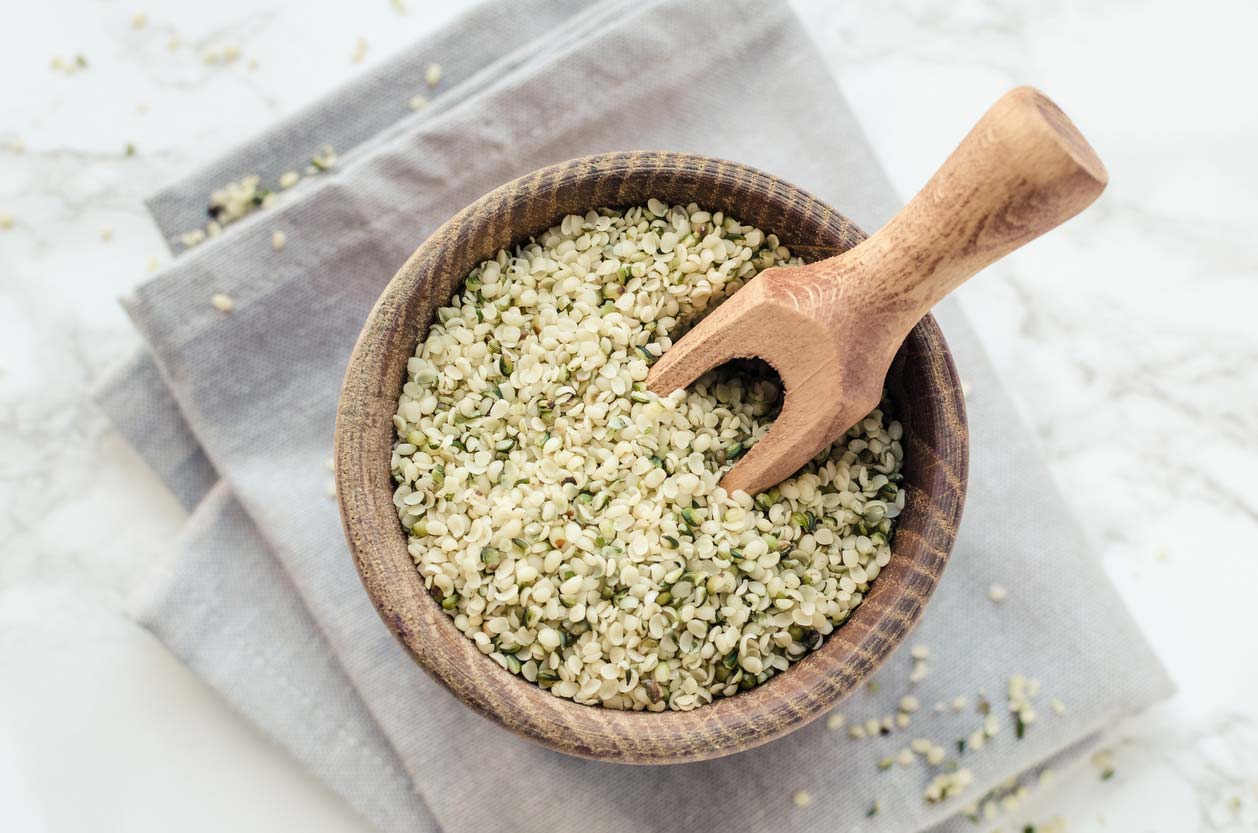
October 25, 2023 3 min read
In the realm of superfoods, there's one that often flies under the radar but deserves a spotlight for its incredible health benefits – hemp hearts. These tiny, nutrient-packed seeds are an unsung hero in the world of healthy eating. Despite their remarkable nutritional profile, hemp hearts remain a well-kept secret for many. In this comprehensive article, we'll explore the countless advantages of incorporating hemp hearts into your daily diet. By the time you finish reading, you'll be ready to harness the health benefits of these tiny powerhouses and make them a staple in your meals.
Hemp hearts, also known as hemp seeds, are the edible insides of hemp seeds, derived from the hemp plant (Cannabis sativa). Don't let the association with the cannabis plant confuse you – hemp hearts are entirely safe, legal, and non-psychoactive. These tiny seeds boast a delicate, nutty flavor and a soft, creamy texture, making them a versatile addition to various dishes.

One of the key reasons hemp hearts are hailed as a superfood is their exceptional nutritional content. A 3-tablespoon (30-gram) serving of hemp hearts provides:

Now that you understand the nutritional value and health benefits of hemp hearts, let's explore how you can incorporate them into your daily meals:
Conclusion
Hemp hearts are an unsung hero of the superfood world, offering a multitude of health benefits in their tiny form. By embracing hemp hearts as part of your daily diet, you're not only enjoying a diverse array of delicious foods but also reaping the rewards of improved heart health, better digestion, and a reduced risk of various diseases. So, whether you're a seasoned hemp heart enthusiast or new to these remarkable seeds, make space for them in your diet, and experience the many advantages they bring to your overall well-being. Welcome the mighty hemp heart into your life, and watch as it enhances your journey to a healthier you.

❤ Try our USDA certified Hemp Hearts ❤
Related Blogs:
Comments will be approved before showing up.

January 27, 2025 3 min read
Flaxseed, the tiny yet powerful superfood, is packed with nutrients that can support weight loss. From curbing hunger to stabilizing blood sugar, this guide dives into the science of how flaxseed can help you shed those extra pounds.

December 11, 2024 3 min read
Discover three quick and easy soup recipes featuring organic small red beans. From a classic vegetable soup to a creamy potato blend, these wholesome recipes are perfect for chilly days and busy weeknights. Packed with flavor and nutrition, these soups will warm your heart and soul this winter!

December 06, 2024 3 min read
This vibrant and nutritious Green Lentil Salad combines tender lentils with grilled chicken, fresh vegetables, and a zesty lemon dressing. Packed with protein, fiber, and essential vitamins, it’s the perfect healthy meal for any time of day.
© 2026 Be Still Farms- Real, Fine Organics.
Privacy | Terms | Refund Policy | Organic Certification
